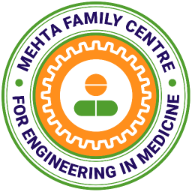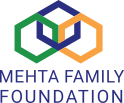The Department of Biological Sciences and Bioengineering, Indian Institute of Technology Kanpur (IITK), invites applications for faculty positions in the areas of Regenerative Medicine, Molecular Medicine and Engineering and Digital Medicine for its newly established center, the Mehta Family Centre for Engineering in Medicine(MFCEM)
We seek highly motivated applicants at the interface of engineering and medicine, with creative ideas, bold vision, and an outstanding capacity for multi-disciplinary research. The applicants must display an ability to drive innovative research and contribute to teaching at both graduate and under graduate levels. The candidate should have a PhD or an equivalent degree in relevant disciplines and demonstrate an outstanding research track.
The institute offers a highly competitive package with intramural funding, outstanding laboratory facilities, and offers to facilitate industrial transfer of technology via Startup Incubation and Innovation Centre.
Applications can be submitted in the online portal at IITK. It should include curriculum vitae, statement of research plan, statement of teaching, contact information of referees and a cover letter. Women candidates and candidates from under-represented categories are encouraged to apply. For further enquiries, please contact the Head, Department Biological Sciences and Bioengineering ( This email address is being protected from spambots. You need JavaScript enabled to view it. ).
Areas of Specialization under the 3 Focus Areas
Regenerative Medicine:
- Regeneration: Musculoskeletal regeneration (including bone, cartilage, ligament, tendon, muscle, etc.) with an associated need / disease context (e.g., osteoporosis, arthritis, osteosarcoma, ACL injury in sports, muscular dystrophy). Other tissues of interest include cardiac tissue, neural tissue and tumor tissue.
- Tissue Engineering: design and development of novel 3D scaffolding systems for improved tissue regeneration. Scaffold mediated modulation of cell fate via material design strategies / growth factor or bioactive molecule delivery. Can include manipulation of materials at smaller length scales such as the nano-/micro-meter length scale as well as strategies for immobilization and release of bioactive molecules/cytokines/chemokines.
- Stem cell engineering: engineering and improvising stem cells for the purpose of tissue regeneration.
- Cellular mechanosensing and mechanotransduction: This can be in specific cell types or could be with stem cells. It is desired to have it in the context of connecting physiology to pathology.
- Immunoengineering: regenerative immunology, immunomodulatory biomaterials, immuno-onco-engineering, computational immunoengineering.
- Sensing and diagnosis: sensing of biomolecules at all length scales (sub-cellular, cellular, tissue and organ), label free biosensors, nano-biosensors, point-of-care diagnostics, early diagnosis (i.e. ultralow analyte concentration).
Molecular Medicine and Engineering
- Precision Medicine: Cancer, Infectious and non-communicable diseases, Predictive –Omics, Big Data and Genomic Sequencing, Targeted- and Immunotherapies, Artificial Intelligence and Machine Learning in medicine, Liquid Biopsies for diagnostics and clinical monitoring, Affordable Biomedical microfluidic devices, Multimodal Diagnostics.
- Genome and Cellular Engineering: Tools for Genome editing, CRISPR genome editing, Genome editing-based therapeutic solutions, Nanoscale Engineering, DNA Nanodevices for biosensing, Cellular Engineering, Cellular Microenvironment Engineering, CAR-T cell engineering, Viral and non-viral vectors for cell engineering.
- Drug discovery: Chemical and synthetic approaches to drug discovery, Synthetic and Medicinal Chemistry, Synthetic strategies for drug design, Nano-Drug delivery systems, Biologics Development, High-throughput drug screening, Organoid engineering for drug discovery, Vaccine development, Biosensors for drug discovery and analysis.
- Neuroscience and Neuroengineering: Neurophysiology, Cybernetics, Brain-computer interface technologies, Sensory Information Processing, Signal processing, Computational neuroscience, in vivo imaging of neuronal network, Biosensors for neurochemical monitoring, Wearable/Implantable Sensory Systems.
Digital Medicine
- Digital Diagnostics: Use of AI/ML for medical images, real-time monitoring of patient information using mobile sensors
- Digital Devices: Connected implantables, point-of-care devices, closed-loop systems, monitoring of recovery, performance and treatment adherence ·
- Digital Psychiatry: Automated software interventions for various psychiatric disorders, including depression, anxiety, and addiction. Natural language processing based conversational agents, eHealth, mHealth.
- Digital Biology: Simulations of cells, Simulations of tissues, Systems medicine, Systems biology, Computational biology
















